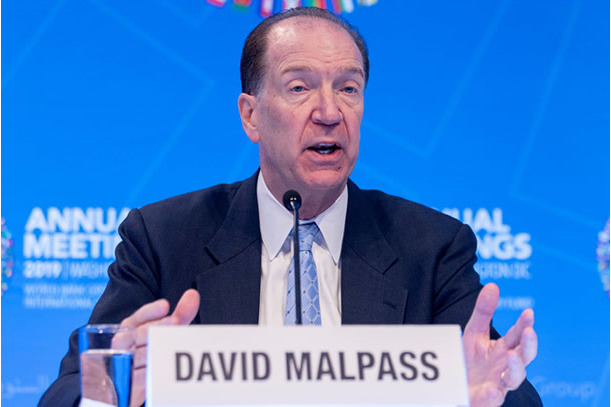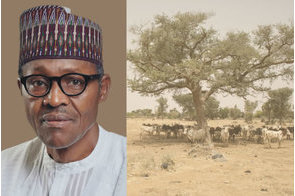World Bank unveils plan to support climate-resilient growth in Africa

Summary
Targets food security, environmental stability, clean energy, green and resilient cities, and [resilience to] climate shocks.
The World Bank has released a blueprint designed to accelerate low carbon, climate-resilient action to help achieve sustainable economic growth and shared prosperity in Sub-Saharan Africa (SSA).
The blueprint, called the Next Generation Africa Climate Business Plan (NG-ACBP), provides a framework for SSA countries to pursue novel development pathways through climate adaptation and resilience together with clean energy.
In a statement released on Tuesday, the World Bank said although Sub-Saharan Africa has contributed the least to greenhouse gas (GHG) emissions, the region suffers the most from the impacts of climate change. The year 2019 was the third warmest year on record in Africa. If the pace and scale of climate impacts intensify, the bank warned that the economic growth and development goals of many countries in the region would be at risk.
The NG-ACBP aims to deliver accelerated, development-focused climate action for six years (2021-2026). The Business Plan will serve as a framework for the World Bank to support climate action in SSA by focusing on the region’s core development challenges and priorities.
As the largest financier of climate action in Africa, the World Bank said it has supported 346 projects with more than $33 billion over the past six years. Given the urgent need to scale-up climate action in SSA, the NG-ACBP is a platform for the bank to increase its portfolio in the region.
The bank said its top priorities will be to help drive low-carbon, climate-resilient development and the achievement of the Sustainable Development Goals (SDGs) in SSA countries with less than a decade left to achieve the 2030 Agenda.
The new Climate Business Plan identifies five strategic directions and two areas of emphasis in Africa that are critical to achieving growth and shared prosperity. The five strategic directions for climate action in Africa over the next six years, according to the NG-ACBP, are food security, environmental stability, clean energy, green and resilient cities, and climate shocks.
The World Bank said the share of people who are food insecure in SSA reached 277 million in 2018, representing 22 per cent of the entire population. Climate change is expected to adversely impact crop yields, crop and livestock viabilities, nutritional quality of agricultural produce and the livelihoods of 54 per cent of the workforce in the agriculture sector. Hence, the plan aims to address the food and nutritional security of the population as a strategic direction to achieve resilience.
In terms of environmental stability, the plan will focus on fostering resilient rural livelihoods and urban economies. The World Bank said about 62 per cent of the population living in rural areas of SSA – and a growing population in urban areas – need a stable and secure water supply and continued ecosystems for their survival.
Furthermore, about 50 per cent of the SSA population currently lacks access to electricity, according to the bank. The plan aims to increase energy access as a critical enabler of resilience. The goal is to achieve universal access to affordable, reliable, sustainable, and modern energy as a way to strengthen community resilience and promote economic diversification.
As rapid urbanization in SSA is estimated to increase the urban population from 441 million in 2020 to 1.3 billion by 2050. As a result, the plan calls for proactive policy reforms and planning to achieve climate-smart urban transition and green mobility for existing and future cities.
Climate shocks in the region have caused wide-ranging social and economic disruptions, especially for the bottom 40 per cent. The NG-ACBP aims to support enhanced resilience of the poorest populations to climate shocks, with effective short-term and far-sighted response and delivery systems.
The bank said achieving the plan’s impact through the strategic directions would be underpinned by two areas, namely by implementing climate-informed policies and building green, resilient infrastructure that can serve as engines of growth.
“Africa’s main challenge is to adapt to climate change by investing in more resilient agriculture and food systems, building infrastructure that resists extreme weather events, protecting its coastal cities, and enhancing disaster preparedness systems. At the same time, green technologies provide an opportunity for growth and job creation,” said Hafez Ghanem, World Bank Vice President for East and Southern Africa.
The Climate Business Plan also outlines pathways for embedding climate action into COVID-19 fiscal stimulus packages currently being implemented by countries. The World Bank said the pandemic response provides an opportunity to scale up efforts to transition to a green economy and to achieve the most optimal long-term outcomes.
The multilateral development bank said the pandemic has caused one of the biggest setbacks in the region’s development in the last 25 years. While the loss of lives from COVID-19 is incommensurable, the bank said COVID-19 is estimated to cost the SSA region between $37 billion and $79 billion in output losses for 2020 due to a combination of factors, including trade and value chain disruption, reduced foreign financing flows, and containment measures.
As countries work to build back better, the World Bank said strong climate action and green recovery should be key priorities to ensure that the poor who have been disproportionately affected by the pandemic are not left behind.
According to the Bank, the ability to sustainably reduce poverty and achieve shared prosperity in SSA will be increasingly undermined if vulnerabilities to climate change are not addressed. Therefore, the new Africa Climate Business Plan recommends that SSA countries should enact policy reforms that recognize the realities of climate change, in order to strengthen recovery and promote long-term growth.
“The climate challenge cuts across every priority – poverty reduction, agriculture, job creation, women’s empowerment, fragility, and more,” said Ousmane Diagana, World Bank Vice President for West and Central Africa. “Countries therefore have to tackle it in multiple ways, including by helping cities develop in clean ways, making climate smart agriculture practices the norm, improving clean, green, and affordable energy, and putting people and communities at the forefront in order to improve lives and protect the future.”
Related
-
Nigeria's climate progress after COP28
Access Bank, as a key player in the financial sector, has been playing a key role in supporting Nigeria's climate finance ...
-
Why Buhari's tree planting initiative should be reconsidered
To reduce the impact of climate change, tree planting does not necessarily have to be widespread in grassland.
-
How to cope with climate change vulnerability in Nigeria
Nigeria is among the countries most vulnerable to climate change, despite its comparatively marginal contribution of ...







